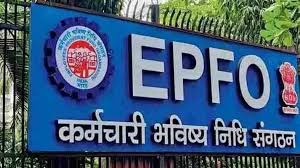Case No -1
Case Title Goutam Roy V/S Avolon Projects (NC)
CC No 1941 of 2018
Decided on 24.01.2023 (NC)
Issue: Law on forfeiture of earnest money: Real Estate
(How much deduction is justifiable if the home buyer cancels the booking?)
Facts:
- Builder and Home buyer signed an agreement having forfeiture clause. In case of cancelling the booking by Home Buyer, 20% of total basic sale price shall be forfeited.
- Question before the National Commission was as to how much deduction is reasonable and justifiable
National commission while referring to number of SC cases on the issue relied upon section 74 of 1872 Contract Act that in case of breach of contract, actual damage is to be proved for penalizing the other party. In such matters cancelling the booking flat or property by the buyer, the property remains with builder only and there is hardly any loss to the builder National commission ordered for forfeiture of 10% of the total sale cost of the property
Similar Cases Referred:
- Moula Bux V/S Union of India 1970 SC
- Sirdar K B Ram Chandra Raj URS v/s SC 2015theory of actual damage as per section 74 of contract act
- Amit Gupta & Anr. Versus. M/S. Vatika Limited ( National Commission) Consumer Case No. 425 Of 2018
Legal issue in above case: Whether there can be any forfeiture of earnest money or any money when agreement not signed by the parties due to objectionable clauses?
“Commission directed refund of the entire amount of Rs.37, 05,892/ which the said complainant had paid to the OP, along with interest on that amount @ 9% per annum.”
Dr Prem Lata
Case-2
Case Title; National Insurance Company Ltd. versus the Chief Electoral Officer & Ors. (SC)
Civil Appeal No.4769 of 2022;
Decided on February 08, 2023 (Sanjay Kishan Kaul; J., Abhay S. Oka; J.)
Issue: Whether death by heat stroke could be said Accidental death
Facts
National Insurance Company Ltd, and the Chief Electoral Officer, Bihar, Patna, entered into a Memorandum of Understanding on 09.02.2000 to provide insurance cover to the persons deployed for election related work for Bihar Legislative Assembly Elections in the year 2000.
Scope of Cover
“The insurance is intended to provide for the payment of compensation in the event of death only resulting solely and directly from accident caused by external violent and any other visible means.”
Late Deval Ravidas, Constable, Shivhar District Force,who was deployed for election related work for Bihar Legislative Assembly Elections in the year 2000 died on account of heat stroke on 26.05.2000 during election duty and had not occurred on account of any external violent activity/accident.
Compensation sought which was rejected by NC. Chief electoral commission filed an appeal before SC against the order of NC.
SC confirmed the order of NC
Dismissed the appeal with the following observations –
“Death due to sun stroke during election duty will not come under the scope of the clause “death only resulting solely and directly from accident caused by external violent and any other visible means “Proximate causal relationship between the accident and the body injury is a necessity”
Reference was made to the earlier decide case of similar nature
Alka Shukla vs LIC ((2019) 6 SCC 64
Principal laid down for interpretation of law –
A distinction between “accidental means” and “accidental result”
(a) a fatal heart attack while dancing would be called “accidental” but would fail to attract insurance cover as not due to “accidental means
(b) Heart attack suffered as a result of over-exertion on being chased by a ferocious dog the death might attract the insurance cover as it was caused by “accidental means”.
Dr Prem Lata
Case No -3
Case Title Association of Vasanth Apartments’ Owners Versus V. Gopinath & Ors. (SC)
Civil Appeal No. 1890-91 of 2010; (Directed against the judgment dated 19.10.2007 of Chennai HC)
Decided on February 13, 2023
Issue: Building Rules
Regulation 19 of Development Control Rules for the Chennai Metropolitan Area mandated that builders should reserve open spaces in the plots developed by them
Facts
- Members of Association of Vasanta apartment are owners of certain apartments situated in a complex which consisted of 12 blocks. A portion of the land was earmarked in terms of Rule 19 of the Development Control Rules as OSR area. Despite the lapse of 12 years the OSR area had not been developed into a park. The Vasanth Apartments is divided by a compound wall from this OSR area WHICH IS USED AS a katcha road. The Vasanth Apartments claims that the said land, is part of their lay out.
- In view of the fact that there appears to have been a kachha road and it was being used as a road by large numbers of members of the public to reverse the position on the ground ,it will be a great deal of great deal of injustice. Hence direction to use the land for purpose of OSR only, HC held.
Supreme Court upheld Rule
- A rule which mandated that builders should reserve open spaces in the plots developed by them Mandate to reserve 10% open space area does not violate Article 14 and 300A of the Constitution- It does not amount to compulsory acquisition.
- Areas covered by the Open Space Regulations cannot be diverted for any other purpose – The respondents (local authorities) are duty-bound to ensure that the area set apart as OSR is stringently utilised only for the purpose in the Rule/Regulation.
- We direct that no area meant for OSR shall be utilised as dumping yards or any other purpose other than as OSR
- Dr Prem Lata
Case No-4
Case Title: Naresh Garg and Sons VS CHD Developers Ltd. (NC)
CC No. 1753 of 2018,
Decided on 23rd March 2023
Issue: Whether Builder can take advantage of his own wrong? (Delay in possession by builder)
Brief Facts:
The flat in question was earlier allotted to one Sh. Sarvesh Kumar Mr. Naresh Garg, applied to the Opposite Party, CHD Developers, for re-allotment of the unit near the Golf Course Avenue in Gurgaon which was permitted and the re-allotment, after all the necessary formalities and payment of charges. The possession of the unit was to be delivered by the opposite party within 42 months from the date of agreement but Opposite Party failed to deliver the possession within the stipulated time…
Arguments extended by Opposite Party:
- That the delay was caused due to a notification by the National Green Tribunal, Delhi resulting into stopping all construction activities by OP for a few months.
- That the complainant does not fall under the definition of ‘consumer’ as Section 2(1)(d)(i) of the Consumer Protection Act of 1986 for the reason the property was purchased for investment and re-sale and falls under Commercial purpose
- That the Complainant’s claim is inflated to bring the complaint within the pecuniary jurisdiction of NCDRC.
National Commission Held
National commission while dealing with the above case, rejected the Developers’ contention that delay was due to guidelines issued by the National Green Tribunal to stop construction The bench remarked that the Opposite Party cannot take advantage of his own wrong of not following green tribunal Rules and then make it a reason for delay in construction, It cannot be said force majeure.
SC Judgment
- There was no blanket order of the NGT to stop construction activities. The direction to stop construction activities was only where the construction was being carried out in violation of the MOEF Guidelines 2010.
“Builders are to bear for the consequences for the delays caused due to their own mismanagements and if any order by any courts are passed subsequently, that cannot be treated as force majeure conditions.”
- The contention of the Opposite Party that Mr. Naresh is not a consumer was rejected as no evidence was produced to corroborate the same.
Dr Prem Lata
Case No -5
Case Title – Kamukayi & Ors. versus Union of India and Ors. (SC)
CIVIL APPEAL NO. 3799 OF 2023
(ARISING OUT OF SLP (C) NO. 17062/2022)
Decided on 16.05.2023
Issue:
- Will the absence of a ticket cause refusal of claim of bona fide passenger
(Defining ‘untowards incident’ under Railways Act, 1989)
Facts:
- The High Court of Madras in Civil Miscellaneous Appeal No. 2442/2019. Held
Appellant had failed to establish the deceased was a bona fide passenger Also Failed to establish any ‘untoward incident’ or the death of deceased is an outcome of untoward incident.
- Railway Claims Tribunal, Chennai Bench also dismissed , claim petition filed seeking compensation for the death of Muchamy @ Muthusamy
Appeals Before Supreme Court
Legal position
- Section 123 (c) clause (2), “the accidental falling of any passenger from a train carrying passengers would be an untoward incident.”
- As per Section 124A, “The Railway Administration is liable to pay compensation on account of untoward incident. When in the course of working of railway, an untoward incident occurs then whether or not there has been any wrongful act, neglect or default on the part of the Railway Administration as such, would entitle a passenger who has been injured or died. Railway is liable to pay compensation as prescribed for such untoward incident.
- By the explanation of the said Section clarifying about ‘passenger’, it would include a person who has purchased a valid ticket for travelling by a train carrying passengers on any date or a valid platform ticket and becomes a victim of an untoward incident.
SC Held
- However, mere absence of ticket with such injured or deceased will not negative the claim that he was a bona fide passenger. Initial burden will be on the claimant which can be discharged by filing an affidavit of the relevant facts and burden will then shift on the Railways and the issue can be decided on the facts shown or the attending circumstances.
- Whenever any untoward incident happens occurs in the course of working of the railway, the Railway Administration is liable to compensate the passenger irrespective of whether there has been any wrongful act, neglect or default on the part of railway administration
Referred Cases:
Madhya Pradesh High Court in Raj Kumari v. Union of India
Delhi High Court in Gurcharan Singh v. Union of India ,
Andhra Pradesh High Court in Jetty Naga Lakshmi Parvathi vs. Union of India
Supreme Court in Kamrunnissa vs. Union of India
Dr Prem Lata



